Last August, women’s basketball junior shooting guard Natisha Hiedeman found herself standing on a mat in the Kasten Gym, sparring a former Navy SEAL.
“It was really tiring,” Hiedeman said. “I give wrestlers a lot of credit, fighters a lot of credit. It was hard.”
(Footage courtesy of Marquette Athletics.)
This exercise was part of “The Program,” a two-day training regimen run by former Navy SEALs and military members that combines leadership exercises with intense workouts. It’s the second year head coach Carolyn Kieger has welcomed “The Program” to the Al McGuire Center.
“They come in for a couple days and teach toughness, teach discipline and accountability,” Kieger said. “Its been very helpful over the last two seasons for us and we refer back to that quite a bit.”
While Hiedeman fought, her teammates ran around the exterior of the ring, completing various physical challenges. Until all 13 teammates completed each station, Hiedeman had to stay in the ring and continue to fight a man trained for war-zone combat.
“If you wanted to be lazy with the exercise and take forever, then you’re leaving your teammate to die out in the ring,” junior Allazia Blockton said.
Staff Sgt. Sam Cila taught the session. He has finished the Ironman World Championship, climbed some of the world’s tallest mountains and competed in countless CrossFit competitions. He also doesn’t have a left hand, which he refers to as “an inconvenience.”
Cila lost his hand the morning of July 4, 2005 — Independence Day — while on combat patrol in Baghdad, Iraq. While approaching a bag on the side of a road that appeared to be a sack of grain, a hidden remote-control bomb under it detonated, instantly shredding his left hand and almost the entirety of his arm. Two platoon members pulled him to safety, and a medic clamped a severed artery just minutes before he would have bled to death.
“Most people think I woke up and decided I was going to be an endurance athlete and a leadership instructor,” Cila said. “The truth is, I struggled for the better part of two years with depression, addiction to pain medication and trying to re-identify myself.”
After overcoming that struggle with the help of his friends, fellow soldiers and colleagues at “The Program,” Cila visits collegiate programs across the country applying the lessons he learned in the military to sports.
“The scoreboard is different. It’s points vs. life or death,” Cila said. “But the lessons are the same. The preparation is the same. Prepare for any basketball game with less than 100 percent, be undisciplined, be selfish, you’re going to have zero success.”
That attitude meshes well with the “we, not me” motto Kieger instituted for her team.
“We’re all sisters,” point guard Danielle King said. “We all had to go through it together … It even strengthened our team chemistry.”
Sparring might have been a step down in intensity from last year’s experience during its first year with The Program. That particular session involved swimming in a 12-foot pool with heavy sweatpants and a sweatshirt over their workout clothes. Each participant needed to take the sweatshirt off in the water below a certain time threshold to pass the drill.
The activity was especially challenging for juniors Danielle King and Natisha Hiedeman, who couldn’t swim prior to the session. “Natisha actually learned how to tread water during this time. It’s just about survival, basically,” King said.
While lifeguards were on site for the pool exercise, Cila and other instructors made it clear they won’t jump in to help anybody that struggles. All the players in the deep end had to rely on their teammates to get them through.
It’s a parallel experience to the one Cila went through after he returned from Iraq. Cila said he might not have made it through his post-war struggles had it not been for people who cared about him.
“Your teammates, they hold you to a standard,” Cila said. “They understand what’s best for you and they don’t allow you to make mistakes, take shortcuts or be lazy.”
When players arrived on the first day, there was a reluctance to trust the instructors or do the exercises as they are told, a challenge participants faced regardless of prior experience. The instructors had to break through a natural resistance to change.
Marquette started to come around at about the same time most programs do: the morning of the second day. That’s when players typically start to realize how the drills benefit them and start to build trust. By the end of the two-day session, players feel more connected to their teammates.
“We really felt good as a team and closer as a team after that,” Blockton said.
There are two standards each “leader,” as Cila calls the players, should have understood after completion of the course: Accomplish the mission, and take care of your people.
“I want them to understand that the burden of leadership … is you get held accountable for whatever happens or fails to happen in your organization,” Cila said. “When you have that burden on you, the easiest way to mitigate failure is simply staying true to accomplishing the mission and (taking) care of your people.”
Hiedeman, who might be moving into more of a leadership role as she assumes some point guard duties this year, already sees a difference in the way the team interacts.
“They kind of pushed us to levels we didn’t think we could reach,” Hiedeman said. “With them just showing us and proving to us that we can go an extra mile, it kind of just carried over to the basketball court.”

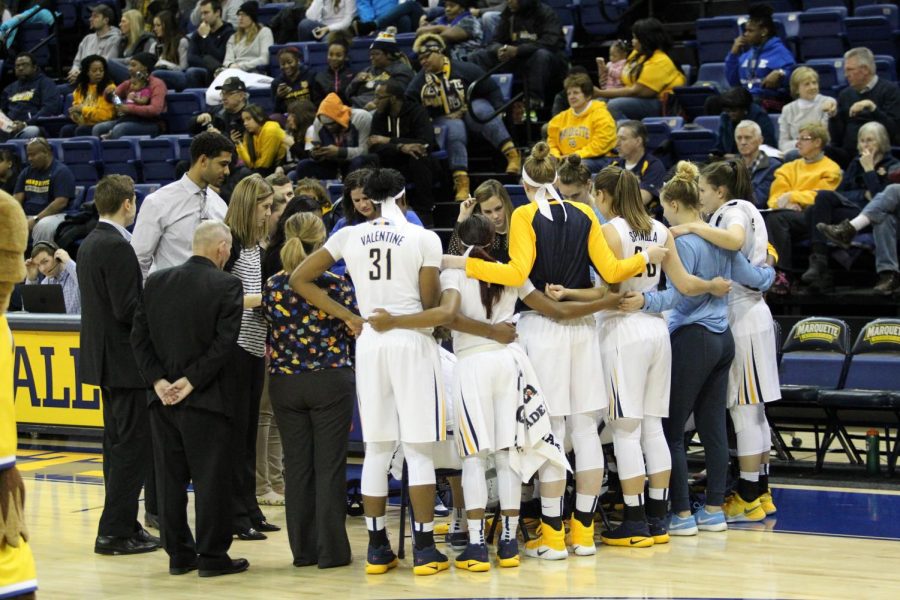
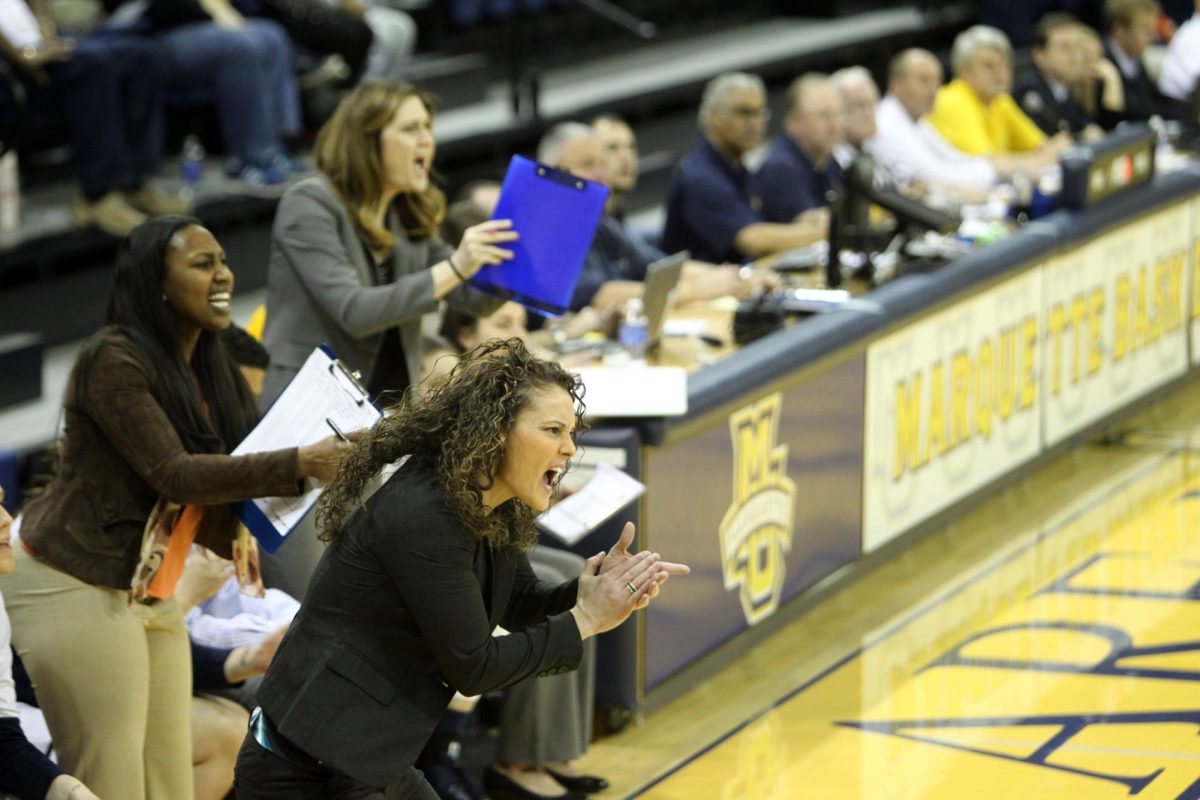
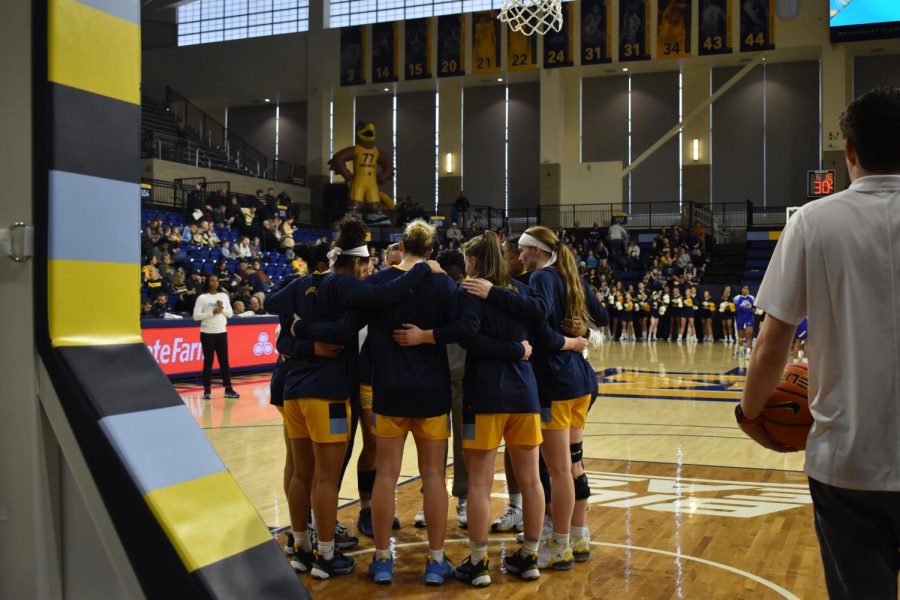
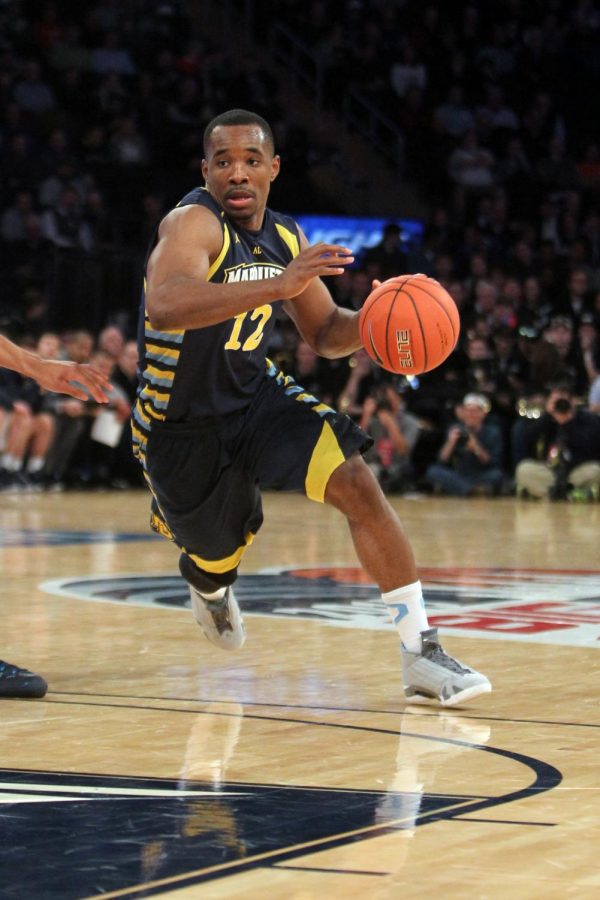
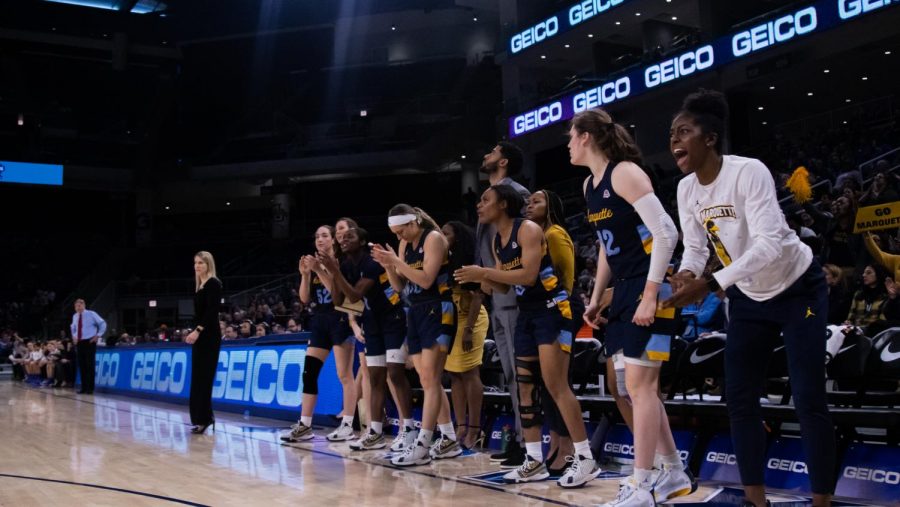
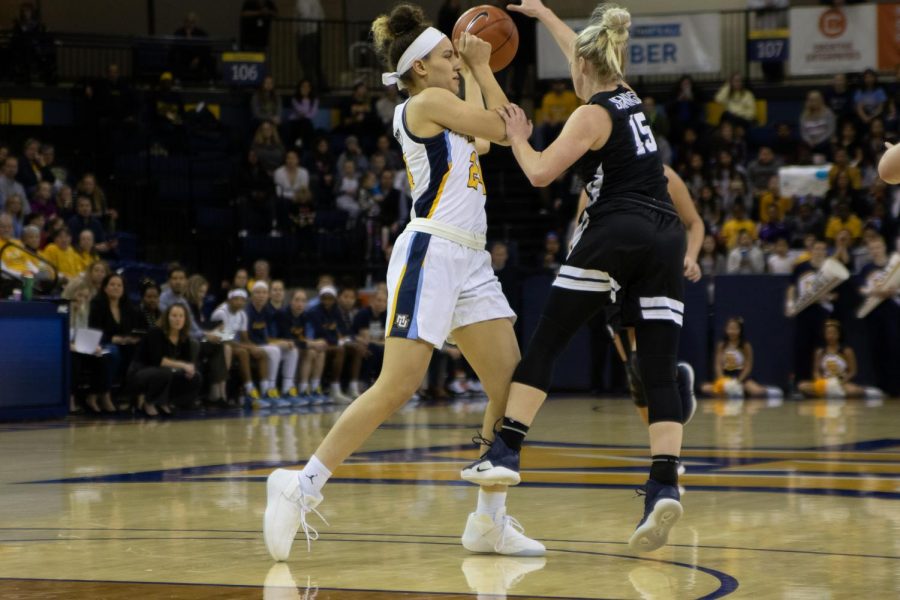
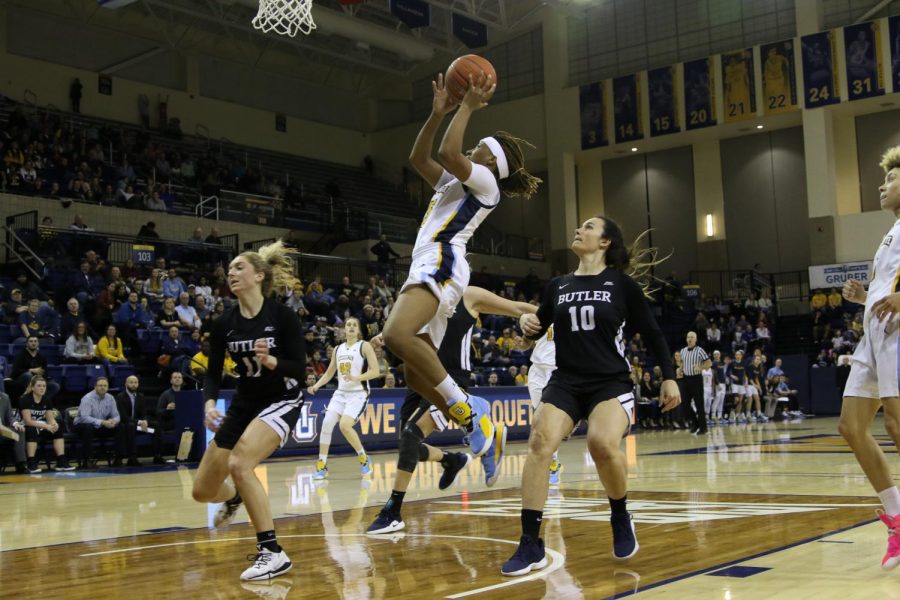
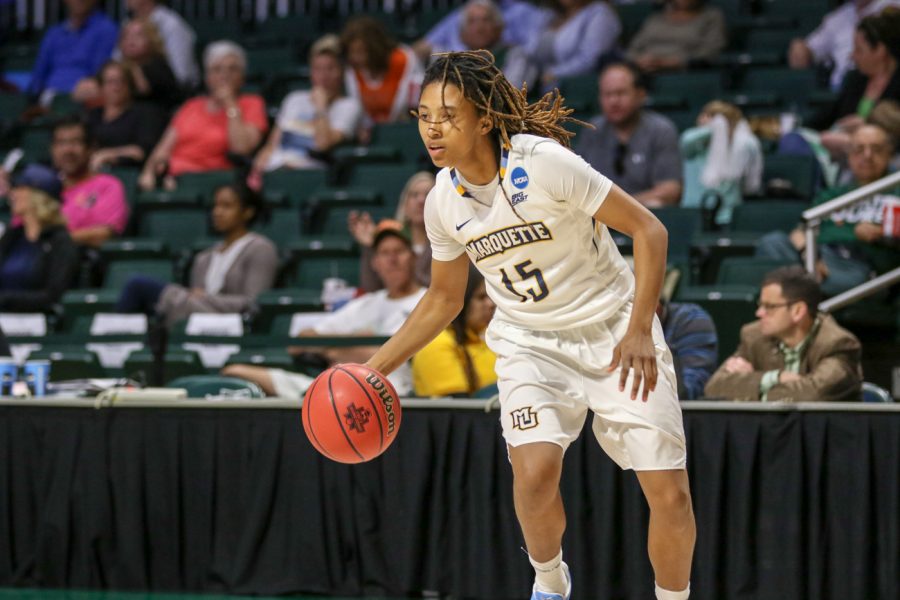
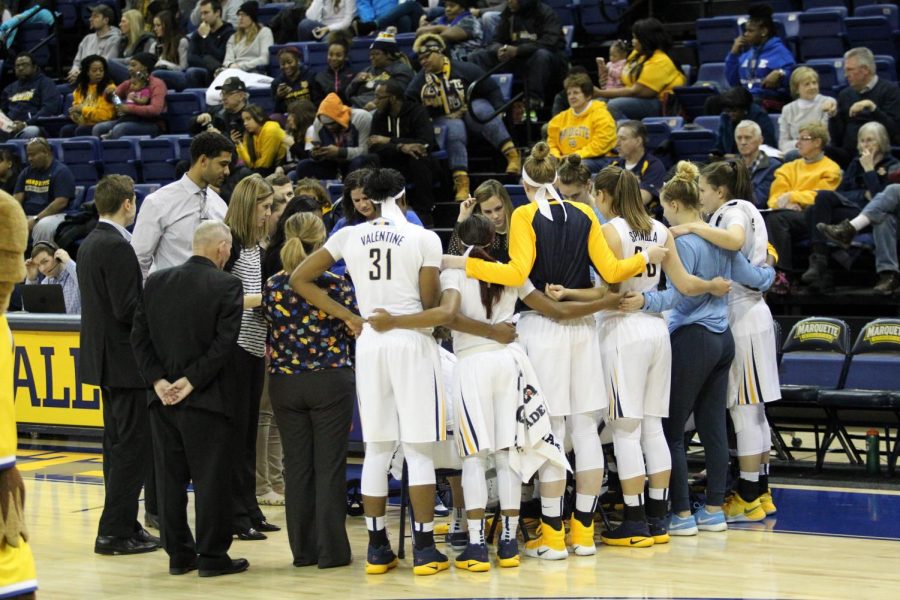
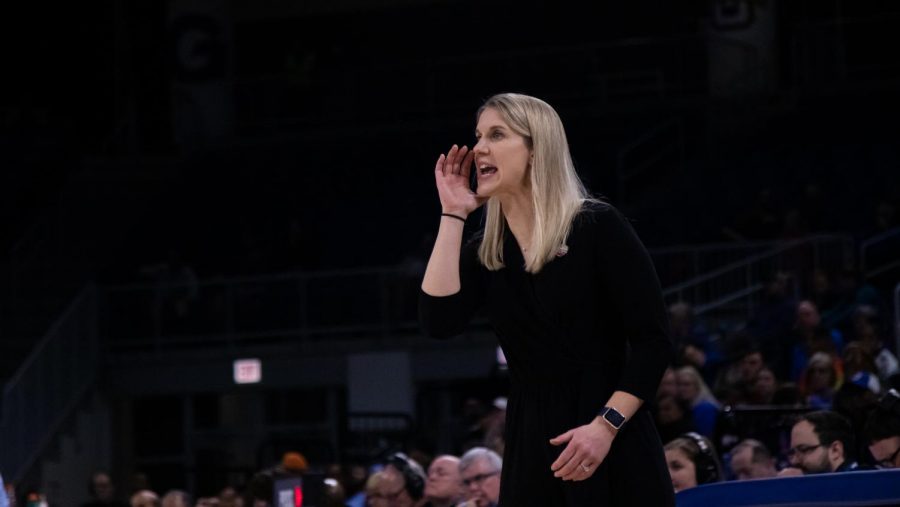
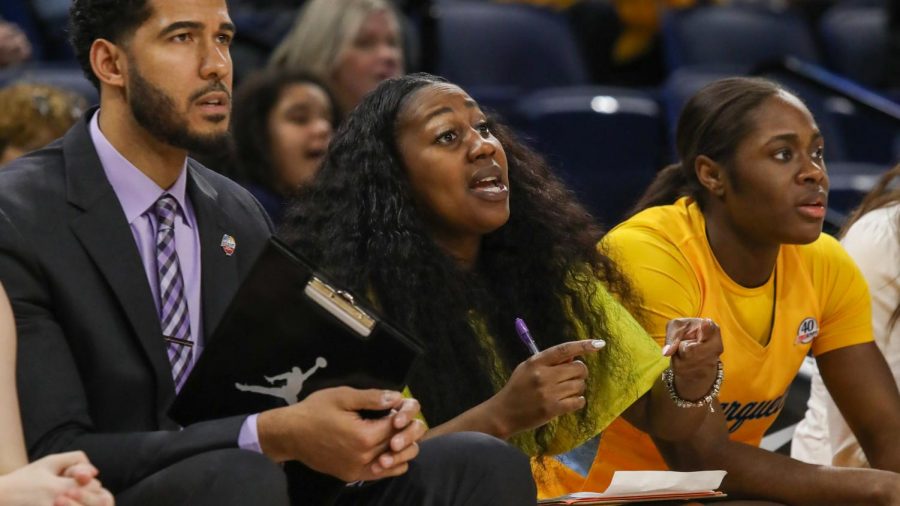
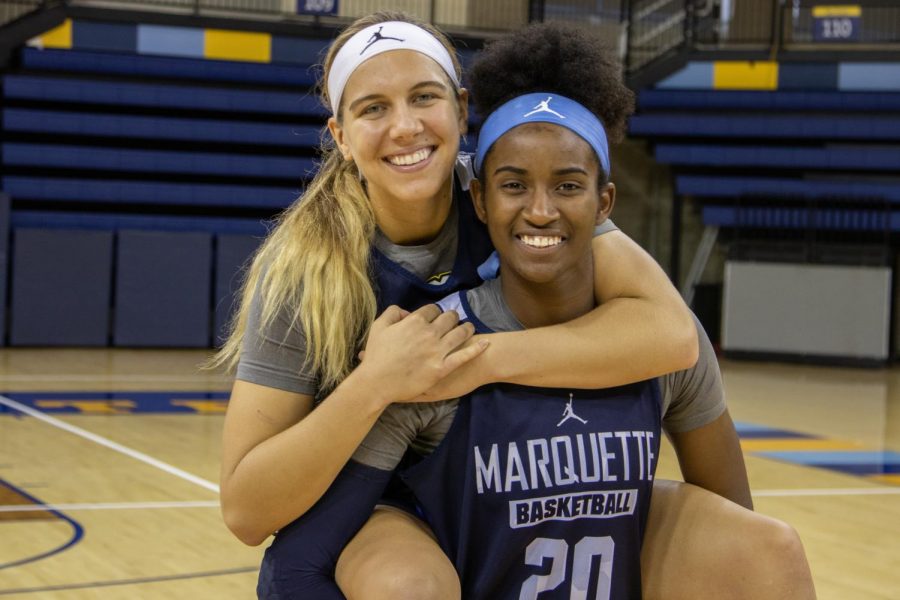
Andrea Forte • Nov 15, 2017 at 8:03 am
GREAT story Andrew! I enjoyed reading about how “The Program” experience grew the team dynamic and enhanced the players’ strength as individual leaders. It will be interesting to follow the team this season knowing the preparation and commitment the players have made to themselves and each other.